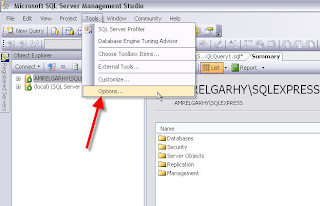Post to your blog without ever leaving Firefox
ScribeFire is an extension for the Mozilla Firefox Web Browser that integrates with your browser to let you easily post to your blog: you can drag and drop formatted text from pages you are browsing, take notes, and post to your blog.
Saturday, May 31, 2008
Post to your blog without ever leaving Firefox (ScribeFire)
Posted by Amr at 1:15 AM 1 comments
Wednesday, May 28, 2008
Links
A Dual Slider for AJAX Control Toolkit
What's Killing Twitter: Twitter Gets Help Digging its Grave
Ranking Your Blog - Managing and Gaining Popularity
Free eBook - Best of Simple Talk ASP.NET
Hooked on LINQ - Developers' Wiki for .NET Language Integrated Query
ASP.NET - Precompiled Site Options
The difference between ID, ClientID and UniqueID
WebServiceStudio
IETester Renders Sites like Internet Explorer 5.5 Through 8
15 Tools to Help You Develop Faster Web Pages
Posted by Amr at 2:02 AM 0 comments
Take care from your HTML comments
Commenting in html code may make a web page renders the wrong way,
The problem i faced is if you wrote:
<!-- some comments <!-- another some comments -->
OR
<!------> hello-->
Not all HTML parsers get this right, so my problem was that the VS and dream weaver consider it as comments but in the browser i saw "some comments, hello-->" showing, so the browser didn't consider it as a HTML comment, so take care from this point.
See some more hints about html comments
Posted by Amr at 2:01 AM 0 comments
Thursday, May 22, 2008
The biggest collection of "Programming Jokes"
The best and biggest programming jokes i read online:
http://www.devtopics.com/best-programming-jokes/
Posted by Amr at 3:53 PM 1 comments
Friday, May 16, 2008
Add Microsoft Ajax reference to javascript file
To use microsoft ajax library reference inside your javascript file and see the Intellisense (VS 2008) while writing your javascript code:
/// <reference name="MicrosoftAjax.debug.js" />
Posted by Amr at 2:35 PM 0 comments
Labels: .Net, Ajax, AjaxToolkit, Asp.Net, JavaScript
Thursday, May 15, 2008
Show hide system objects SQL Server's Enterprise Manager
If you want to show or hide the system objects in SQL server's enterprise manager such as "master database, system tables, system stored procedures":
1- In SQL Server 7.0 and SQL Server 2000:
Step 1:
Step 2:
2- In SQL Server 2005's Management Studio:
Step 1:
Step 2:
Hint: In SQL Server 2005's Management Studio you will need to restart the management studio to make changes take effect.
Posted by Amr at 10:50 PM 0 comments













